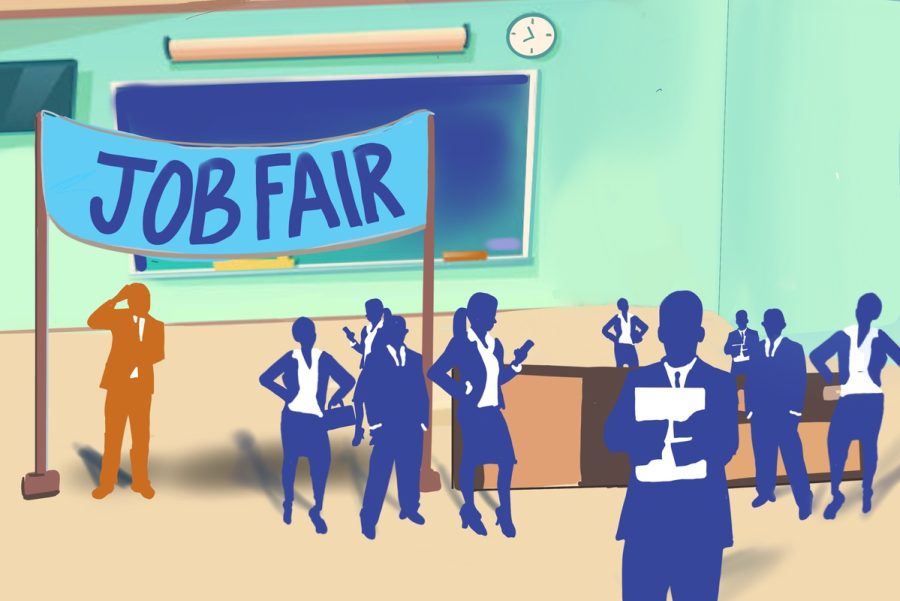UT should make job fairs more inclusive, accessible to all majors
July 24, 2022
Almost every student knows the existential struggle of trying to decide what you want to do with your life. It seems unfair to demand such a hefty answer from an 18 year old. You just went to prom, and now you’re expected to know what career you want. Unsurprisingly, many students change their minds and switch majors by graduation.
Students deserve ample flexibility and support to figure out their futures. UT should make all career fairs more inclusive and accessible to students of any major.
Many students use job fairs to test the waters for future professions. Job fairs are immensely popular in helping students meet industry professionals and answering a diverse range of career questions.
Considering how valuable job fairs can be to students, it’s surprising that not all of these fairs are open to all majors. Twelve of 15 upcoming career fairs offer unobstructed access to every student. Access to the other fairs are reserved for students within a specific college or school.
Limiting admission to job fairs based on major can be detrimental to students seeking more than one career option. Roughly 80% of college students switch majors at least once, so it’s common for students to need time and resources to make sense of what they want to pursue. Restricting entry to career fairs only curbs major and career exploration.
Computational biology sophomore Annie Fu wasn’t always set on her current degree track. After a computer science course piqued her interest, she shifted her focus away from pre-med. Fu then added a computer science minor but soon realized more work was needed.
“I wanted to (go to more job fairs) in terms of, like, finding out what other jobs there are for me,” Fu said. “But I just don’t end up going… (because of) time conflicts.”
This scheduling conflict further demonstrates how inaccessible these fairs can be for students actively trying to utilize them. Not only are students limited by their major or school, but they’re also limited by their course schedule — something out of their control. Career fairs coinciding with classes forces students to prioritize one over the other. No one should have to sacrifice their education or career because of a lack of proper planning on the University’s part.
Summer Salazar, director of employer engagement at Texas Career Engagement, says that most career fairs are open to all students. She also describes the McCombs Career Expo as an example of accessibility to all majors.
“The McCombs career fair shows that it’s open to current McCombs students for the full duration of the event, and then open to all UT students during a portion,” Salazar said. “So let’s say the event is from 1 p.m. to 4 p.m., maybe 1 p.m. to 3 p.m. is only for McCombs students and then from 3 p.m. to 4 p.m. is open to all majors.”
While seeing UT trying to include all students is a step in the right direction, it’s still not enough. With Fu pointing out earlier how job fairs are already hard to reach during their total runtime, limiting access to them even further isn’t practical for many students. Allowing entry to only a portion of the event doesn’t give students equal opportunities. The University should allow all students the same access to these fairs.
UT often encourages students to discover new interests and expand their knowledge, but the current way some career fairs are set up doesn’t convey this message. Students deserve more support and guidance, and improving career fairs is a good start.
Su is a neuroscience junior from Dallas, Texas.



